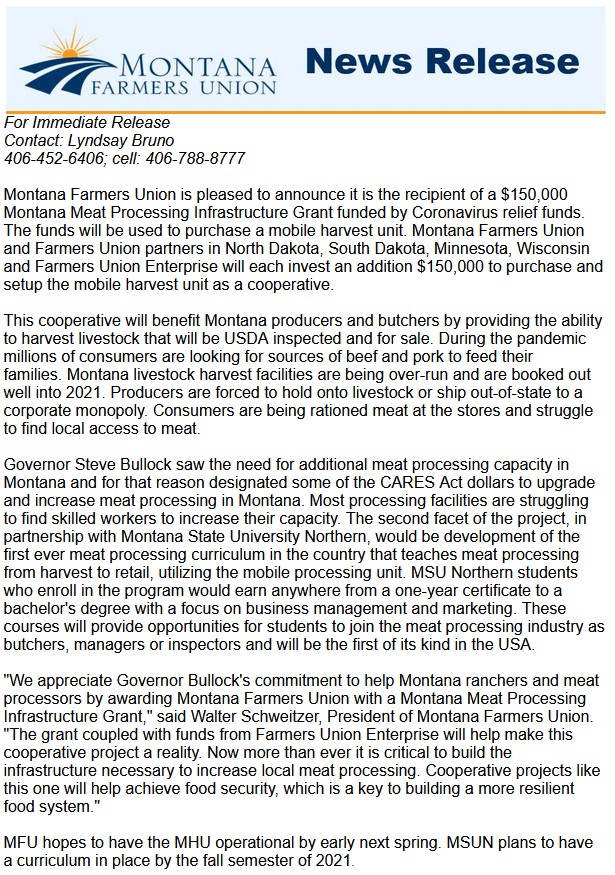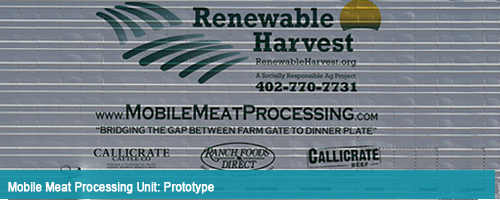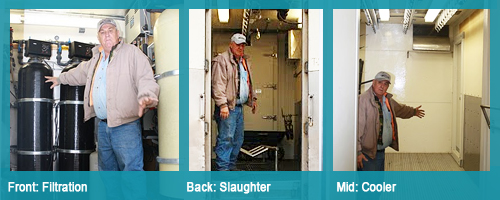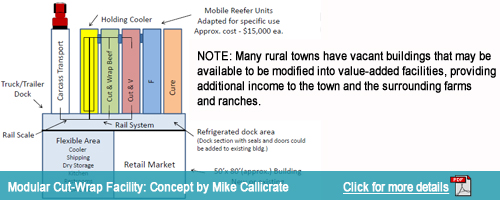Building Community Around Local Food – Montana Organic Association 2020 Conference
Instead of trucking livestock to processing facilities, mobile processing allows for trailers to travel to livestock.
“Providing additional small scale processing with mobile units is an important component in rebuilding local and regional sustainable food systems.”
Instead of trucking livestock to processing facilities, mobile slaughter allows the processing trailer to travel to the livestock, a concept that has potential to localize the food system while being more humane for the animals.
“Providing additional small scale processing with mobile units is an important component in rebuilding local and regional sustainable food systems,” stated Mike Callicrate, Ranch Foods Direct Owner.
For many ranchers, there’s little choice for where to sell your cattle if they want to control the distribution or sell the butchered meat themselves.
KRCC’s Noel Black visited a ranch in northwestern Kansas near the Colorado border where a small group of people are taking small steps to change that.
[audio:http://mobilemeat.wpengine.com/wp-content/uploads/2014/04/090410-WS-Mobile-Slaughter-Unit-2.mp3]Warning to listeners, some of the sounds and descriptions in this piece are graphic.
Next generation processing trailer loaded with new features
“It’s the first of its kind. Many parts on this trailer had never been manufactured before”
THE SCOOP: Callicrate Cattle Company received its new custom-built meat processing unit last month. “This is a milestone. It’s a state-of-the-art design,” says Ranch Foods Direct owner Mike Callicrate.
THE BACKSTORY: In 2011, Mike’s ranch began processing on-site with a demonstration trailer provided by the Socially Responsible Ag Project. Construction on a new unit started soon after. It contains many revolutionary features, including a hide puller and a section of the processing rail that rotates, making carcass splitting easier. “There’s also lots of interior lighting and two scales measure both live and hot carcass weights.” The trailer has been extended five feet to accommodate a carcass quartering section outside of the cooler and to provide a tight docking seal for loading into the transport trailer. The carcass cooling section is rearranged to be more efficient. A second hoist on the outside of the trailer allows a staging area for hanging up the next animal in line. “With four people, we will be able to slaughter 20 head a day,” he says. “Water use of 32 gallons per head will continue to improve; at the big packing facilities, it’s around 730.”
UP NEXT: Housing it in a new 65×100-ft. building will permit comfortable operation year-round.
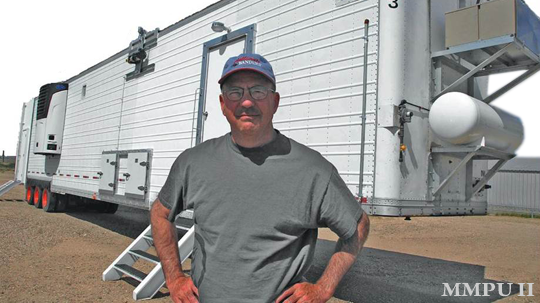
RFD 05/16/2011 Press Release (PDF) | NEAC 05/16/2011 Press Release (PDF)
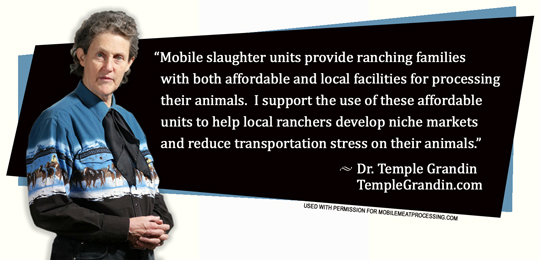
Mobile Meat Processing Informational Videos
Part I: Set-up
Part II: Stunning, Bleeding and Moving
Part III: From Carcass to Cooler
Cowpool.org Promotes Localized Mobile Meat Processing Units
![]() ‘Cow pooling’ refers to sharing beef, but we’re not talking just any beef. The cow pooling program will market the processing and distribution of local, sustainable and humanely raised beef from a source you can trust.
‘Cow pooling’ refers to sharing beef, but we’re not talking just any beef. The cow pooling program will market the processing and distribution of local, sustainable and humanely raised beef from a source you can trust.
Mike Callicrate, at his natural meat company Ranch Foods Direct, assures that the Cowpool.org initiative is to foster businesses that benefit both local ranchers and consumers, with processing and distribution systems that provide incomparable quality, wholesomeness, eating satisfaction, and a mutually rewarding relationship of trust and responsibility.
Learn more about Cowpool.org
Dark Side of Meat Processing
The MEATRIX® Take the red pill and watch the critically-acclaimed, award-winning first episode of The Meatrix Trilogy.
Our heroes Moopheus, Leo and Chickity expose the dark side of Meat Processing.
A Pig’s Tail
The Humane Society of the United States has teamed up with Academy Award-winning Aardman Studios to create A Pig’s Tail, a short but compelling animated film about a pig’s perspective of factory farming.
This film gives a taste of how animals are treated on factory farms and how we can help by choosing more humane alternatives.
